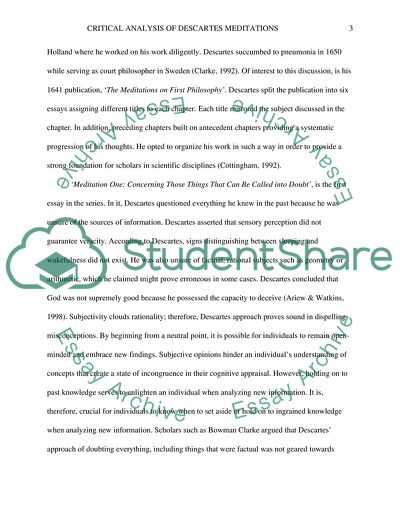Cite this document
(Main Aspects of Descartes Meditations Essay Example | Topics and Well Written Essays - 1250 words, n.d.)
Main Aspects of Descartes Meditations Essay Example | Topics and Well Written Essays - 1250 words. https://studentshare.org/philosophy/1816017-critical-analysis-of-decartes-meditations
Main Aspects of Descartes Meditations Essay Example | Topics and Well Written Essays - 1250 words. https://studentshare.org/philosophy/1816017-critical-analysis-of-decartes-meditations
(Main Aspects of Descartes Meditations Essay Example | Topics and Well Written Essays - 1250 Words)
Main Aspects of Descartes Meditations Essay Example | Topics and Well Written Essays - 1250 Words. https://studentshare.org/philosophy/1816017-critical-analysis-of-decartes-meditations.
Main Aspects of Descartes Meditations Essay Example | Topics and Well Written Essays - 1250 Words. https://studentshare.org/philosophy/1816017-critical-analysis-of-decartes-meditations.
“Main Aspects of Descartes Meditations Essay Example | Topics and Well Written Essays - 1250 Words”. https://studentshare.org/philosophy/1816017-critical-analysis-of-decartes-meditations.


